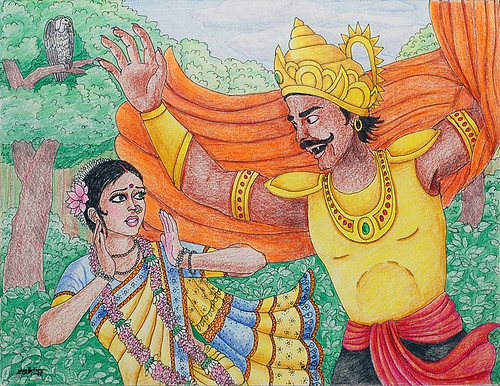Delhi Gang-Rape: A Portrait Of Extreme Chauvinism

The patriarchal and chauvinistic attitudes faced by women in India may be symbolized by one politician who has made a career out of offending females on the subcontinent.
Even after the horror of the gang-rape of a young Delhi woman sparked a nationwide series of protests and soul-searching, Kailash Vijayvargiya, the industry minister for the central Indian state of Madhya Pradesh, has again outraged women by suggesting that rape victims sometimes are to blame for the sexual assaults they suffer.
Speaking to reporters on Thursday night, Vijayvargiya, a member of the right-wing, nationalistic Bharatiya Janata Party (BJP), made a reference to ancient Indian mythology to explain why women must conform to certain limits and restrictions in their behavior, lest they suffer terrible consequences.
“Only when Sitaji crossed the [line], she was kidnapped by Ravana,” he said. “If Sitaji [woman] crosses the [line], then ‘Sitaharan’ [crimes committed against them] is bound to take place as Ravanas are out there,” he said.
“When people cross their limitations, deterioration is bound to happen. It applies to everyone in the society, men or women. … There is a moral limit, which should not be breached, and if it is breached, one must understand that Ravana is watching and then Sita is bound to be abducted.”
The minister was quoting a famous scene from the Ramayana, the ancient Sanskrit epic. Sita, the consort of the Hindu god Rama, lives in exile in the Dandaka forest. Rama’s brother, Lakshman, who shares the dwelling, draws a line around the home to protect Sita while he ventures out to search for his brother.
Meanwhile, Ravana, the demon king of Lanka, desires Sita. Disguising himself as a beggar, he approaches the house asking for alms, prompting Sita to cross the line -- which results in her abduction by Ravana and subsequent imprisonment.
Sita is later rescued by her husband in a conflict that results in Rama killing Ravana. However, Rama later abandons Sita after her purity is questioned.
This is not the first time that Vijayvargiya has uttered such things.
Last July, following the molestation of a 17-year-old girl by a mob in the northeastern state of Assam, Vijayvargiya stirred another controversy by declaring that Indian women should never wear revealing, Western-type clothing -- accouterments that might invite sexual assault and rape.
Now, in the wake of the Delhi gang-rape when sensitivities are especially raw, Vijayvargiya is being taken to task for his remarks.
The ruling Congress Party quickly pounced on Vijayvargiya’s statements.
“The state of Madhya Pradesh is suffering due to the amount of rape cases emerging each day. The [BJP] needs to … be within limits and not commit such crimes against women rather than suggesting limits for women,” Congress official Manak Aggarwal told gathered media in Bhopal, the capital of Madya Pradesh.
Congress Party’s General-Secretary Digvijay Singh even demanded Vijayvargiya‘s resignation.
Similarly, T.N. Seema, the female leader of the Communist Party of India-Marxist (CPI-M) and a member of the Rajya Sabha (the upper house of parliament), condemned Vijayvargiya, citing he had crossed his own limit and should be punished for making such derogatory remarks.
"Who is Vijayvargiya to set limits for women?” she asked. “This kind of a derogatory comment has come when women are struggling for their safety and self-esteem.”
"This trend of blaming the victims and not the perpetrators of the crime is only going to encourage the latter to humiliate, hate, strip, beat and rape innocent women.”
Vijayvargiya was forced to apologize and withdraw his incendiary comments, especially after his own BJP party distanced themselves from his rhetoric.
Ravi Shankar Prasad, the chief spokesman for BJP, earlier told reporters in Delhi: “The party doesn’t approve of it and dissociates itself from the same. The party has asked the Minister Kailash Vijayvargiya to kindly withdraw it.”
Seema blamed not only Vijayvargiya, but thousands of years of patriarchy for fostering such attitudes.
“It hurts to see that, in India, we are living in a male chauvinist society with medieval mindsets finding faults in women for crimes done against them,” she wrote in a column.
“It’s a shame that women in the world's largest democracy are often subjected to taunts, insults and misogynist, sexist remarks, both by common men on the streets and by powerful male politicians despite having a large number of elected women representatives in the country.”
She added: “People like Kailash Vijayvargiya are not only immature and insensitive, but it is difficult for them to believe that sexual crimes thrive on a culture of [intolerance].”
© Copyright IBTimes 2024. All rights reserved.





















